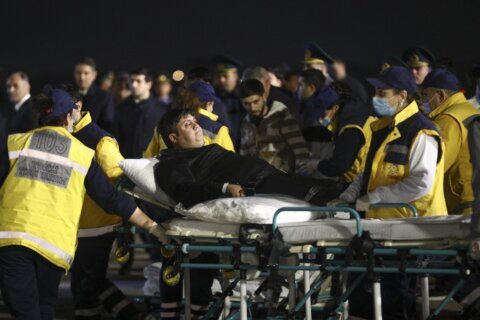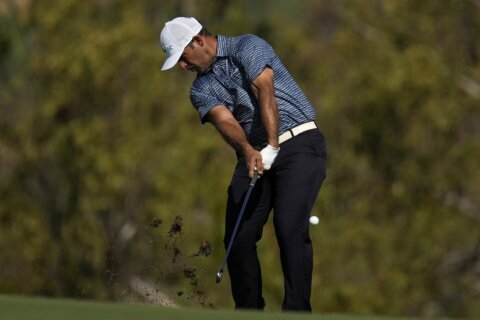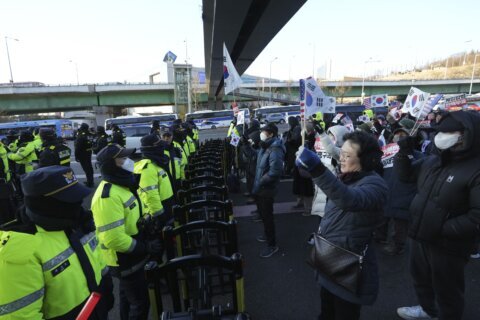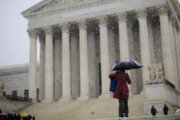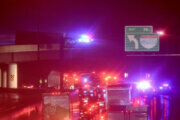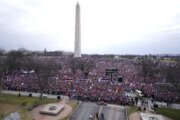VANCOUVER, British Columbia (AP) — Canadian opposition parties called on the speaker of the House of Commons to resign Monday for inviting a man who fought for a Nazi military unit during World War II to attend a speech by the Ukrainian president.
Peter Julian, the New Democratic Party House leader, and Bloc Quebecois leader Yves-Francois Blanchet both said Anthony Rota should step down.
“For the good of the institution of the House of Commons … I don’t believe you can continue in this role,” Julian said. “Regrettably I must respectfully ask that you step aside.”
In Moscow, a Kremlin spokesman said it was “outrageous” that Yaroslav Hunka received a standing ovation during a visit to Ottawa on Friday by Ukrainian President Volodymyr Zelenskyy.
In a statement written in French, Bloc Quebecois Leader Yves-Francois Blanchet said Rota had lost the confidence of the House.
Rota, who issued a written apology Sunday and repeated it in the House on Monday, did not immediately resign.
Prime Minister Justin Trudeau called the incident “extremely upsetting.”
“The speaker has acknowledged his mistake and has apologized,” Trudeau told reporters. “This is something that is deeply embarrassing to the Parliament of Canada and by extension to all Canadians.”
In his apology, Rota said he alone was responsible for inviting and recognizing Hunka. “I am deeply sorry that I have offended many with my gesture and remarks,″ he said.
“No one — not even anyone among you, fellow parliamentarians, or from the Ukrainian delegation — was privy to my intention or my remarks prior to their delivery.”
Just after Zelenskyy delivered an address in the House of Commons, Canadian lawmakers gave the 98-year-old Hunka a standing ovation when Rota drew attention to him. Rota introduced Hunka as a war hero who fought for the 1st Ukrainian Division.
The 1st Ukrainian Division was also known as the Waffen-SS Galicia Division, or the SS 14th Waffen Division, a voluntary unit that was under the command of the Nazis.
The Friends of Simon Wiesenthal Center for Holocaust Studies issued a statement Sunday saying the division “was responsible for the mass murder of innocent civilians with a level of brutality and malice that is unimaginable.”
Kremlin spokesman Dmitry Peskov said memory of the Nazis must be preserved. He said Canada is among the Western countries that have raised a young generation who don’t understand the threat of fascism.
“Such a sloppy attitude toward this memory is, of course, outrageous,” Peskov said during his daily conference call with reporters.
Russian leader Vladimir Putin has painted his enemies in Ukraine as “neo-Nazis,” even though Zelenskyy is Jewish and lost relatives in the Holocaust.
In Ottawa, opposition leader Pierre Poilievre blamed Trudeau and the Liberal government for creating a “massive diplomatic embarrassment and shame” for not properly vetting Hunka.
“The prime minister is responsible,” the Conservative leader said. “Will he take responsibility for his latest embarrassment?”
House government leader Karina Gould said the incident “hurt all of us in Parliament.”
“It’s been deeply embarrassing for Canada, and I think it was deeply embarrassing for the president of Ukraine,” said Gould, who is a descendent of Holocaust survivors.
Gould said it was Rota’s decision to invite Hunka. “Neither the government of Canada nor the delegation of the Ukraine had any knowledge of this,” she said.
___
Associated Press writer Daria Litvinova in Tallinn, Estonia, contributed to this report.
Copyright © 2025 The Associated Press. All rights reserved. This material may not be published, broadcast, written or redistributed.

